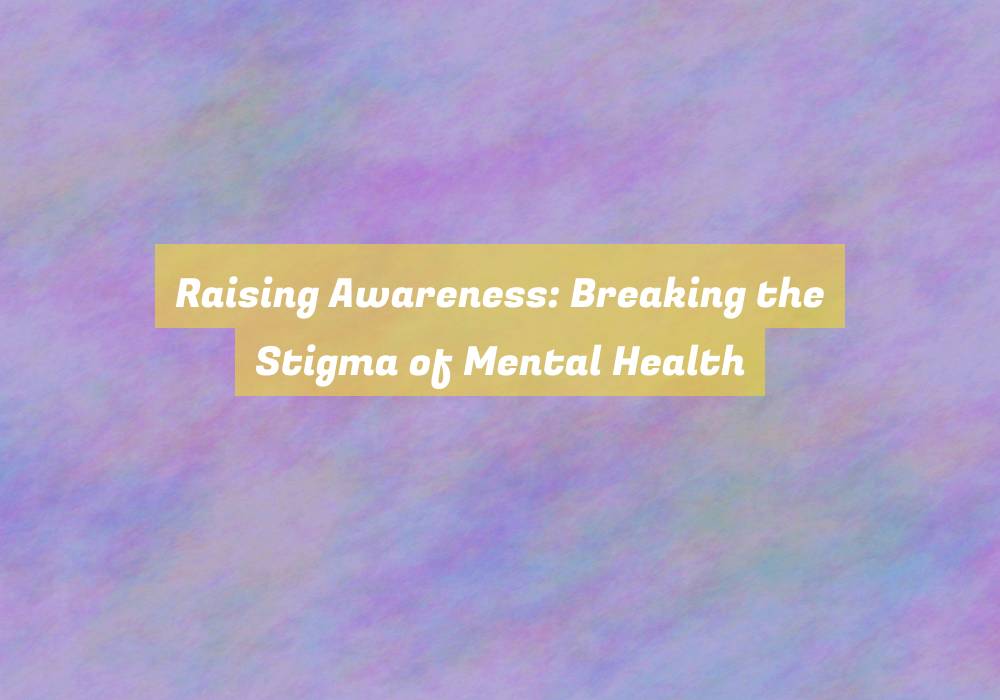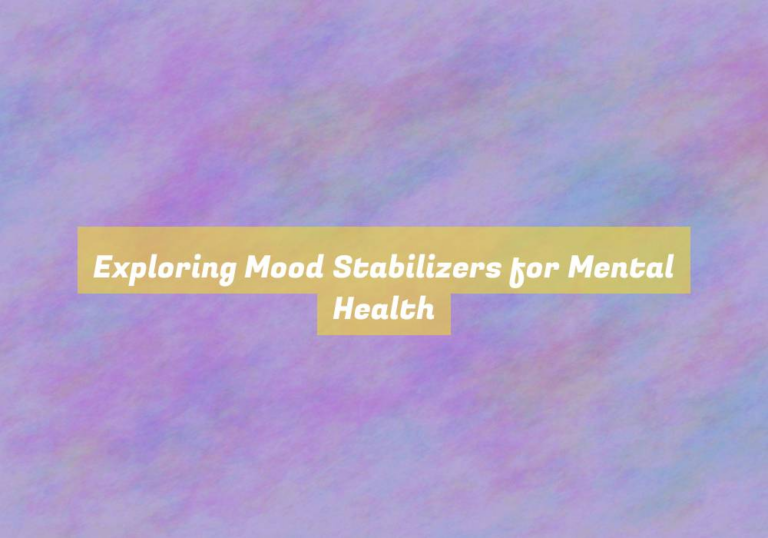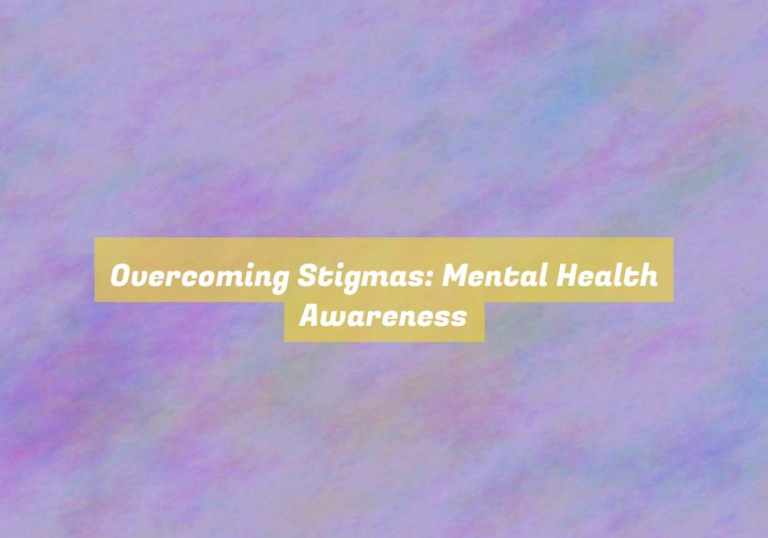Raising Awareness: Breaking the Stigma of Mental Health
YouG??ve probably seen it in movies, TV shows, or even in your own social circles – the way mental health is often portrayed or discussed can perpetuate harmful stereotypes and misconceptions.
But why does this matter? Well, the impact of stigma on individuals and society is far-reaching and often goes unnoticed.
Understanding the complexities of mental health stigma and its effects is crucial for creating a more supportive and inclusive environment for everyone.
So, letG??s explore how breaking the stigma of mental health can lead to positive change and better outcomes for individuals and communities.
Understanding Mental Health Stigma
Understanding mental health stigma begins with recognizing the negative attitudes and beliefs that society holds about mental illness. ItG??s crucial to acknowledge that these beliefs often lead to discrimination and prejudice against individuals with mental health conditions. By recognizing these harmful attitudes, you can start to comprehend the impact theyG??ve on those affected by mental illness.
ItG??s important to understand that stigma can manifest in various ways, such as social exclusion, derogatory language, and even in the healthcare system. This understanding empowers you to challenge and change these negative perceptions, promoting a more compassionate and supportive environment for those struggling with mental health issues.
Moreover, understanding mental health stigma involves acknowledging its pervasive nature across different cultural and social settings. By recognizing how stigma operates within your community, workplace, or social circles, you can take proactive steps to address and combat it. This may involve initiating conversations, dispelling myths, and advocating for policies that promote inclusivity and support for individuals with mental health challenges.
Ultimately, understanding mental health stigma is the first step towards dismantling it and fostering a more understanding and empathetic society.
Impact on Individuals and Society
Recognizing the pervasive nature of mental health stigma across different cultural and social settings allows for a deeper understanding of its impact on individuals and society.
On an individual level, the stigma surrounding mental health can lead to feelings of shame, isolation, and reluctance to seek help. It can also result in delayed or inadequate treatment, exacerbating the challenges individuals face. This, in turn, can lead to adverse effects on their overall well-being, relationships, and ability to function in daily life.
Furthermore, the societal impact of mental health stigma is significant. It contributes to discrimination in various areas, including employment, education, and healthcare. This can result in reduced opportunities for individuals with mental health conditions and perpetuate inequality. Additionally, the economic burden of untreated mental health conditions, often exacerbated by stigma, is substantial for society as a whole.
Strategies for Challenging Stigma
To challenge the stigma surrounding mental health, individuals and communities must actively promote open discussions and education about mental illness. One effective strategy is to openly share personal experiences with mental health challenges. By speaking out, you can humanize the issue and show that mental illness doesnG??t define a person. Encouraging others to share their stories can help break down stereotypes and misconceptions.
Additionally, promoting education about mental health in schools, workplaces, and community centers can help raise awareness and reduce stigma. Providing accurate information about mental health conditions can dispel myths and encourage empathy and understanding.
Another strategy is to challenge stigmatizing language and attitudes. When you hear someone using derogatory terms or making insensitive remarks about mental illness, gently but firmly address the issue. By doing so, you can help create a more supportive and inclusive environment.
Furthermore, supporting mental health organizations and initiatives can help raise visibility and advocate for better resources and support for those affected by mental illness. By participating in events, fundraisers, and awareness campaigns, you can contribute to a more compassionate and informed society.
Creating Supportive Environments
You can foster supportive environments by actively promoting empathy and understanding for individuals with mental health challenges. One way to do this is by educating yourself and others about mental health. By understanding the complexities of mental health conditions, you can better support those who are struggling. Encouraging open and honest conversations about mental health can create a safe space for individuals to share their experiences without fear of judgment. When you actively listen to and validate the experiences of those with mental health challenges, you help to break down barriers and create a supportive environment.
Creating supportive environments also involves being mindful of language and attitudes towards mental health. Avoid using stigmatizing language and instead, choose words that are respectful and considerate. By promoting positive language and attitudes, you can contribute to a more inclusive and understanding community.
Additionally, advocating for policies and resources that support mental health services can make a significant impact. By pushing for better access to mental health care and resources, you can help create a more supportive environment for those in need.
Conclusion
So, donG??t be afraid to speak up and seek help for your mental health. Together, we can break the stigma and create a supportive environment for all.
ItG??s important to understand the impact of stigma and take action to challenge it. By raising awareness and promoting understanding, we can make a positive difference in the lives of individuals and society as a whole.
LetG??s work together to break the stigma of mental health.







